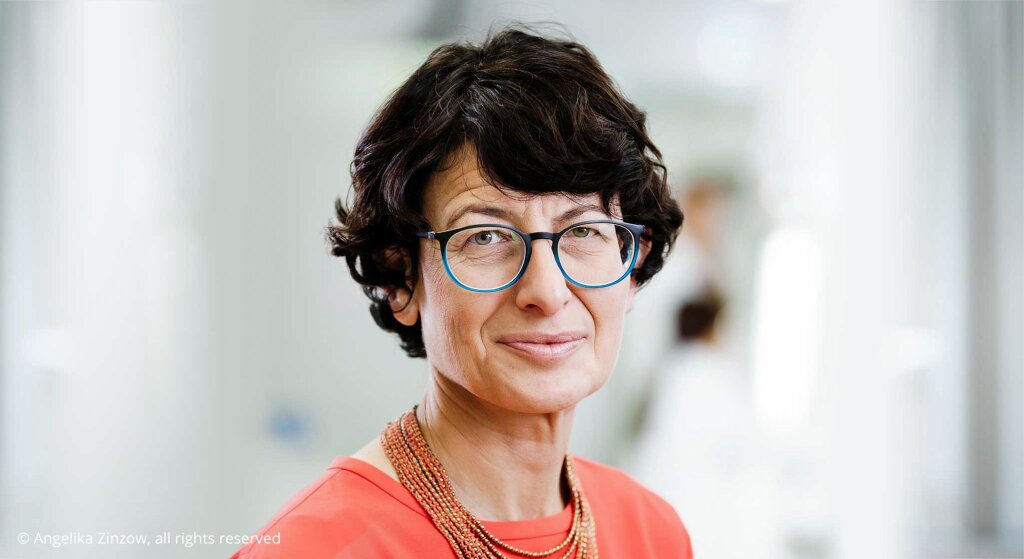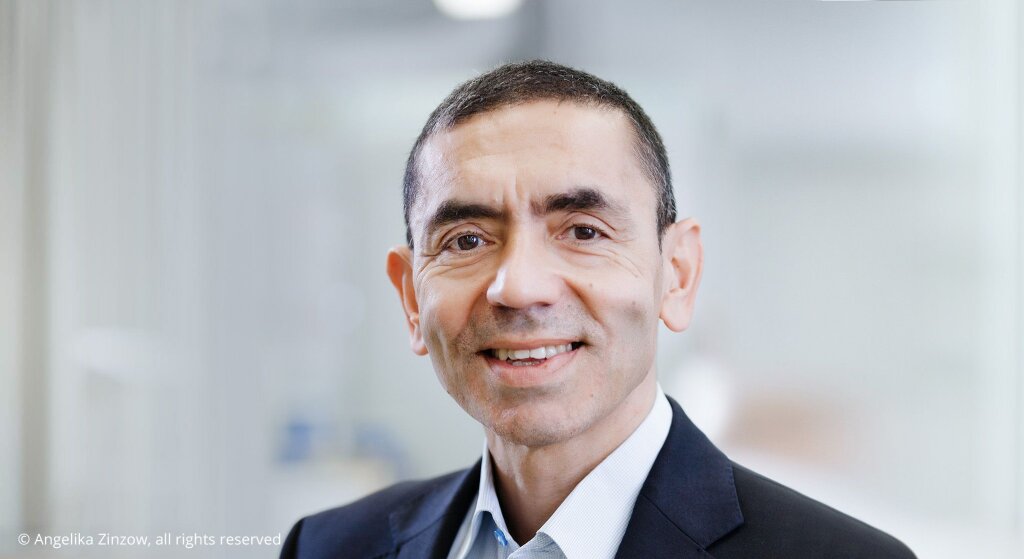Background: Solid tumors comprise approximately 60% of all pediatric cancers. Relapsed or refractory tumors of the central nervous system (CNS), such as atypical teratoid/rhabdoid tumors (AT/RTs), are the leading cause of death in children with cancer. Claudin 6 (CLDN6)-specific chimeric antigen receptor (CAR) T cells have demonstrated activity in preclinical and clinical studies in various solid adult cancers. However, the suitability of CLDN6 as a target in pediatric tumors and their susceptibility to CAR T-cell therapy has yet to be established. This study aimed to evaluate the suitability of CLDN6 as a target for CAR T-cell therapy of pediatric solid tumors.
Methods: Immunohistochemical CLDN6 expression was assessed in fetal normal tissues (n=91), pediatric normal tissues (n=157), and two sets of pediatric tumor tissues (n=527 and n=49) using a combined score that includes the percentage of stained cells with a 4-point intensity scale (0 to 3+). The antitumor activity of CLDN6 RNA-transduced CAR T cells against AT/RT cell lines was assessed with in vitro assays and in immunodeficient NOD-SCID-γc-/- (NSG) mouse models bearing orthotopic xenograft tumors.
Results: Membranous CLDN6 expression, as detected by immunohistochemistry, was widely observed in fetal tissues but was absent in almost all non-malignant pediatric tissues, except for very rare, scattered cells with 1+ to 2+ intensity in kidney, pancreas, pituitary, and salivary gland tissues. Membranous CLDN6 expression was frequently detected in a subset of the pediatric tumor entities, including germ cell tumors (93% of samples with CLDN6-positive cells), nephroblastoma (64%), extracranial malignant rhabdoid tumors (50%), and AT/RTs (39%). In CLDN6-positive samples, CLDN6 was generally expressed with 2+ or 3+ intensity in substantial proportions of the cancer cells. Strong CLDN6 expression was also detected in single samples of hepatoblastoma, Ewing sarcoma/other embryonal tumors, and osteosarcoma.In experimental models, CLDN6-CAR T cells led to antigen-specific killing of endogenously CLDN6-expressing AT/RT cell lines in vitro and exhibited potent and specific antitumor activity in mice bearing orthotopic CLDN6-expressing AT/RT xenograft tumors.
Conclusions: These results support CLDN6 as an oncofetal cell-surface antigen that may be suitable for CAR T-cell targeting in pediatric solid tumors, including those of the CNS.
Obesity is linked to an increased risk of various lung disorders, yet its role in disease progression remains poorly understood. We have utilized multiomics approaches together with functional assays to explore the effect of obesity on the lung. Obesity induced matrisome remodeling and structural alterations in the elastic fiber network, exhibiting solubility shifts that overlapped with those seen in the aging lung. In addition, protease inhibitor levels were reduced in lung tissue and bronchoalveolar lavage fluid, suggesting a more damage-prone environment. At the cellular level, fibroblastic stromal cells (FSCs) selectively accumulated lipids, adopted myofibroblast-like phenotypes, and exhibited transcriptional hallmarks of premature aging. Functional assays confirmed that lipid-enriched fibroblasts displayed enhanced contractility, implicating them in the altered mechanical compliance of the obese lung. Overall, obesity led to complex alterations in the lung that ultimately affect FSCs and suggest that overnutrition may act as a contributor to premature aging, thereby compromising lung heath.
In cancer, metabolic changes and uncontrolled tumor growth alter nutrient availability, impacting antitumor immune responses. Regulatory T (Treg) cells are a subset of T cells with immunosuppressive properties that can also influence tissue homeostasis and repair. However, it is not known how these functions are molecularly controlled and whether they are influenced by tumor metabolism. Here, we report that excessive release of polyamines in the tumor microenvironment directs the functional polarization of Treg cells toward immunosuppression in a protein kinase CK2 (CK2)-dependent manner. Polyamine deprivation as well as genetic or pharmacological inhibition of CK2 activity in Treg cells induced tissue reparative properties in Treg cells that orchestrated efficient antitumor type 2 immune responses and coordinated tissue repair mechanisms to support tumor eradication. These findings suggest that targeted modulation of Treg cell functions could be leveraged as a potential avenue for cancer therapy.
Malignancies increase the risk for thrombosis and metastasis dependent on complex interactions of innate immune cells, platelets, and the coagulation system. Immunosuppressive functions of platelets and macrophage-derived coagulation factors in the tumor microenvironment (TME) drive tumor growth. Here we show that patients with malignancies and tumor-bearing mice have increased levels of coagulation factor (F) X expressing circulating monocytes engaged in platelet aggregate formation. This interaction and resulting thrombin generation on platelets interferes with monocyte differentiation and antigen uptake of antigen-presenting cells (APCs). Myeloid cell-specific deletion of FX or abrogated FXa signaling via protease activated receptor 2 (PAR2) averts the suppressive activity of platelets on tumor cell debris uptake and promotes the immune stimulatory activity of APCs in the TME. Myeloid cell FXa-PAR2 signaling deficiency specifically enhances activation of the cGAS-STING-IFN-I pathway with a resulting expansion of antigen experienced progenitor exhausted CD8+ T cells. Pharmacological blockade of FXa with direct oral anticoagulants expands T cell priming-competent immune cells in the TME and synergizes with the reactivation of exhausted CD8+ T cells by immune checkpoint inhibitors for improved anti-tumor responses. These data provide mechanistic insights into the emerging clinical evidence demonstrating the translational potential of FXa inhibition to synergize with immunotherapy.
Papillary thyroid carcinoma (PTC) is the most common malignant tumor of the endocrine system. BRAF mutations occur in 40-60%, panRAS mutations in 10-15%, and different gene fusion events such as RET fusions in 7-35% of these neoplasms. Artificial intelligence (AI) methods could be used to predict genetic changes from conventional histopathological slides.
Methods: In this retrospective study, we used two independent cohorts of patients with PTC, totaling 662 cases for the establishment of our AI pipeline. The Cancer Genome Atlas cohort (496 cases) served as the developmental cohort, while the Mainz cohort (166 cases) served as an independent external test cohort. BRAF, panRAS, and fusion status was determined for all of these patients as target variables. Vision Transformer was trained on digitized annotated hematoxylin and eosin-stained slides for the presence of these alterations. Highest probability image tiles were used to identify new morphological criteria associated with the genetic changes.
Results: The trained model resulted in an area under the receiver operating characteristic curve of 0.882 (confidence interval 0.829-0.931) for BRAF, 0.876 (0.822-0.927) for panRAS, and 0.858 (0.801-0.912) for gene fusions. Accuracy was 79.3% (72.7-85.8%) for BRAF, 89.3% (84.2-94.0%) for panRAS, and 84.7% (78.8-90.2%) for gene fusions. The performance on the validation set was almost identical to that on the test set. Analyzing the highest predictive tiles, novel morphological criteria for fusion-associated PTC could be discovered.
Conclusions: Our study demonstrates that predicting genetic alterations in digitized histopathological slides using AI is feasible in patients with PTC. Our model showed high accuracy in predicting these changes, making it potentially suitable for pre-screening. Explainability approaches uncovered previously undescribed morphological patterns associated with certain genotypes. Providing pathologists with these AI-based features could improve their accuracy. Assuming further positive prospective validation, this discovery could contribute to a deeper understanding of PTC.
The pronounced desmoplastic response in pancreatic ductal adenocarcinoma (PDAC) contributes to the development of a microenvironment depleted of oxygen and nutrients. To survive in this hostile environment, PDAC cells employ various adaptive mechanisms that may represent therapeutic targets. Here, we showed that nutrient starvation and microenvironmental signals commonly present in PDAC tumors activate PPAR-δ to rewire cellular metabolism and promote invasive and metastatic properties both in vitro and in vivo. Mild mitochondrial inhibition induced by low-dose etomoxir or signals from tumor-associated macrophages altered the lipidome and triggered the downstream transcriptional program of PPAR-δ. Specifically, PPAR-δ reduced mitochondrial oxygen consumption and boosted the glycolytic capacity by altering the ratio of MYC and PGC1A expression, two key regulators of pancreatic cancer metabolism. Notably, genetic or pharmacological inhibition of PPAR-δ prevented this metabolic rewiring and suppressed both invasiveness in vitro and metastasis in vivo. These findings establish PPAR-δ as a central driver of metabolic reprogramming in response to starvation and tumor microenvironmental cues that promotes a pro-metastatic phenotype in PDAC, suggesting that PPAR-δ inhibition could serve as a therapeutic strategy to combat PDAC progression.
Chronic hepatitis B virus (HBV) infection is marked by dysfunctional HBV-specific CD8+ T cells, and restoring their effector activity is a major therapeutic goal. Here, we generated HBV-specific CD4+ T cell receptor transgenic mice to show that CD4+ effector T cells can prevent and reverse the CD8⁺ T cell dysfunction induced by hepatocellular priming. This rescue enhances antiviral CD8+ T cell function and suppresses viral replication. CD4+ T cell help occurs directly within the liver, independent of secondary lymphoid organs, and requires local antigen recognition. Kupffer cells, rather than dendritic cells, are the critical antigen-presenting platform. CD4+ T cells license Kupffer cells via CD40-CD40L interactions, triggering interleukin (IL)-12 and IL-27 production. IL-12 expands the CD4+ T cell pool, while IL-27 is essential for CD8+ T cell rescue. Exogenous IL-27 similarly restores HBV-specific CD8+ T cell function in mice and in T cells isolated from chronically infected patients. These findings identify IL-27 as a tractable immunotherapeutic target in chronic HBV infection.
IκBζ, a rather unknown co-regulator of NF-κB, can either activate or repress a subset of NF-κB target genes. While its role as an inducibly expressed, transcriptional regulator of cytokines and chemokines in immune cells is established, IκBζ's function in solid cancer remains unclear. Here we show that IκBζ protein is constitutively expressed in a subfraction of melanoma cell lines, and around 30% of all melanoma cases, independently of its mRNA levels or known mutations. Deleting IκBζ in melanoma abrogates the activity and chromatin association of STAT3 and NF-κB, thereby reducing the expression of the pro-proliferative cytokines IL-1β and IL-6, thus impairing melanoma cell growth. Additionally, IκBζ suppresses Cxcl9, Cxcl10, and Ccl5 expression via HDAC3 and EZH2, which impairs the recruitment of NK and CD8+ T cells into the tumor, causing resistance to α-PD-1 immunotherapy in mice. Thus, tumor-derived IκBζ may serve as a therapeutic target and prognostic marker for melanoma with high tumor cell proliferation, cytotoxic T- and NK-cell exclusion, and unfavorable immunotherapy responses.
Cancer cell heterogeneity is a major therapeutic challenge. Here, we identify that individual cells within cancer cell populations show significant heterogeneity in the levels of the stress-adaptive organelles, stress granules (SGs), and demonstrate that SG heterogeneity is dictated by cell-cycle state. Specifically, SG-formation is distinctively heightened in cells in G2-phase due to the interplay between a non-apoptotic function of Caspase 3 and calcium-dependent phospholipase A2 (cPLA2)-mediated production of the SG-promoting molecule, 15-deoxy-delta-prostaglandin-J2 (15d-PGJ2). We demonstrate that in G1/S phase, Caspase 3 cleaves and inactivates cPLA2, whereas in G2-phase, Caspase 3 activity is suppressed, resulting in enhanced cPLA2 activity and 15d-PGJ2 upregulation. We show that cell-cycle-dependent SG heterogeneity is a property of pancreatic ductal adenocarcinoma (PDAC) and targeting G2-SGs by inhibiting cPLA2 sensitizes PDAC to G2-arrest-inducing chemotherapeutics. Our findings highlight cell-cycle-dependent SG formation as a fundamental property of SGs, a key aspect of cancer heterogeneity, and a target for cancer treatment.
Background: Thymic epithelial tumors (TETs) are rare malignancies with limited treatment options and underexplored molecular features.
Methods: We examined the genomic landscape and therapeutic outcomes in 81 patients with advanced TETs, including thymic carcinomas (TCs), thymomas, and thymic neuroendocrine neoplasms (TNENs), who were enrolled in the MASTER trial, a prospective observational precision oncology trial.
Findings: Using whole-genome-sequencing and whole-exome-sequencing analysis, transcriptome analysis, and methylome analysis, we identified distinct molecular features across TET subtypes, including a higher tumor mutational burden in TC and pathogenic germline variants in 18% of cases. We performed transcriptome- and methylome-based unsupervised clustering and were able to divide TCs into immunologically hot and cold subsets, with hot TCs exhibiting higher T cell infiltration and significantly longer overall survival. In 65 out of 76 (86%) patients, we recommended molecularly informed therapies, which were applied in 29 out of 65 (45%) cases, leading to a disease control rate of 62% and an objective response rate of 23% (both n = 26). The progression-free survival ratio (PFSr) was > 1.3 in 8 out of 24 (33%) patients, 7 of them having TC. Among TCs, patients achieved a mean PFSr of 1.4, indicating potential therapeutic advantages in this subgroup. The PFSr between the PFS of immune checkpoint inhibition and preceding therapies was significantly higher in the hot cluster compared to the cold cluster (median 1.7 vs. 0.3; p = 0.01945).
Conclusions: Our findings expand the understanding of TET biology and emphasize the role of precision oncology in informing treatment decisions and improving outcomes for patients with advanced TETs, particularly in TCs.
Background/Objectives: The oncofetal membrane protein Claudin 6 (CLDN6) is an attractive target for T cell-based therapies. There is a lack of detailed analyses on the age-dependent expression of CLDN6 in normal tissues is lacking, which limits the expansion of CLDN6 CAR-T cell clinical trials to pediatric populations. Methods: We analyzed CLDN6 expression in extracranial solid tumors and normal tissues of children using RNA-sequencing data from over 500 pediatric solid tumor samples, qRT-PCR and immunohistochemistry (IHC) in more than 100 fresh-frozen tumor samples and, approximately, 250 formalin-fixed paraffin-embedded (FFPE) samples. We examined normal tissue expression via qRT-PCR in 32 different infant tissues and via IHC in roughly 290 tissues from donors across four age groups, as well as in fetal autopsy samples. Results: In fetal tissues, we detected CLDN6 expression primarily in the epithelial cells of several organs, including the skin, lungs, kidneys, intestinal tract, and pancreas, but not in undifferentiated blastemal cells. Postnatally, we found CLDN6-positive epithelial progenitors only during the first few weeks of life. In older-age groups, isolated clusters of CLDN6-positive progenitors were present, but in scarce quantities. In tumor tissues, we found strong and homogeneous CLDN6 expression in desmoplastic small round cell tumors and germ cell tumors. Wilms tumors demonstrated heterogeneous CLDN6 expression, notably absent in the blastemal component. Conclusions: These findings highlight an organ-specific presence of CLDN6-positive epithelial precursors that largely disappear in terminally differentiated epithelia within weeks after birth. Therefore, our data support CLDN6 as a viable therapeutic target in pediatric patients and justify their inclusion in basket studies for anti-CLDN6-based therapies.
Myocarditis, an inflammatory disease of the heart muscle, is often triggered by viral infections. This inflammation, which can lead to severe cardiac dysfunction and adverse outcomes, is mediated by various CC and CXC chemokines that interact with receptors in a "one-to-many" fashion. Ticks have evolved chemokine-binding salivary proteins known as Evasins, which efficiently suppress inflammation. This study explores a tailored Evasin-derived CC chemokine-targeting strategy using a 17-mer synthetic dimeric peptide, BK1.3. This peptide inhibits the inflammatory chemokines CCL2, CCL3, CCL7, and CCL8 in murine Coxsackievirus B3 (CVB3) infection, a viral trigger of myocarditis. Administered at a dose of 5 mg/kg twice daily, BK1.3 effectively maintains virus control without exacerbating CVB3-induced morbidity markers, such as hemodynamic compromise, multiorgan failure with hepatitis and pancreatitis, hypothermia, hypoglycemia, and weight loss. Metabolic profiling combined with proteomics reveals preserved reprogramming of lipid storage and gluconeogenesis capacity in the liver, alongside sustained energy production in the injured heart muscle. In survivors of acute CVB3 infection exhibiting manifestations of the subacute phase, BK1.3 enhances virus control, reduces myeloid cell infiltration in the heart and liver, improves markers of liver injury, and alleviates cardiac dysfunction, as evidenced by echocardiographic global longitudinal strain analysis. These findings affirm the safety profile of BK1.3 peptide therapeutics in a preclinical mouse model of acute CVB3 infection and emphasize its potential for therapeutic advancement in addressing virus-induced inflammation in the heart.
mRNA is produced by in vitro transcription reaction which also leads to formation of immune-stimulatory impurities, such as double-stranded RNA (dsRNA). dsRNA leads to activation of innate immune response linked to inhibition of protein synthesis, its removal from mRNA preparations increases protein translation and efficiency of mRNA. Previous studies identified ion-pair reverse-phase high-performance liquid chromatography as a highly efficient approach for dsRNA removal. Here, we present a comprehensive study of IP-RP LC purification on monolith chromatographic supports for mRNA polishing, demonstrating its ability to remove dsRNA, as well as hybridized RNA fragments and residual DNA template, which are not fully removed by mRNA capture methods. We develop step elution methodology, including at μg scale with novel spin columns operated by centrifugation. We demonstrate SDVB efficacy across a range of molecular sizes, and explore the necessity for temperature control for effective dsRNA removal from self-amplifying RNA. SDVB-purified mRNA and saRNA showed significantly increased transgene expression in cell-based assays, and reduced the activation of cell autonomous innate immunity in A549 at early time points. Our findings highlight the importance of IP-RP purification for high quality mRNA production, while simplifying the technological requirements for its adoption in clinical mRNA/saRNA manufacturing processes.
KRAS-dependent acinar-to-ductal metaplasia (ADM) is a fundamental step in the development of pancreatic ductal adenocarcinoma (PDAC), but the involvement of cell death pathways remains unclear. Here, we show that key regulators of programmed cell death (PCD) become upregulated during KRAS-driven ADM, thereby priming transdifferentiated cells to death. Using transgenic mice and primary cell and organoid cultures, we show that transforming growth factor (TGF)-β-activated kinase 1 (TAK1), a kinase regulating cell survival and inflammatory pathways, prevents the elimination of transdifferentiated cells through receptor-interacting protein kinase 1 (RIPK1)-mediated apoptosis and necroptosis, enabling PDAC development. Accordingly, pharmacological inhibition of TAK1 induces PCD in patient-derived PDAC organoids. Importantly, cell death induction via TAK1 inhibition does not appear to elicit an overt injury-associated inflammatory response. Collectively, these findings suggest that TAK1 supports cellular plasticity by suppressing spontaneous PCD activation during ADM, representing a promising pharmacological target for the prevention and treatment of PDAC.
Radiotherapy is an integral component in the treatment of many types of cancer, with approximately half of cancer patients receiving radiotherapy. Systemic therapy applies pressure that can select for resistant tumor subpopulations, underscoring the importance of understanding how radiation impacts tumor evolution to improve treatment outcomes. We integrated temporal genomic profiling of 120 spatially distinct tumor regions from 20 patients with undifferentiated pleomorphic sarcomas (UPS), longitudinal circulating tumor DNA (ctDNA) analysis, and evolutionary biology computational pipelines to study UPS evolution during tumorigenesis and in response to radiotherapy. Most unirradiated UPS displayed initial linear evolution followed by subsequent branching evolution with distinct mutational processes during early and late development. Metrics of genetic divergence between regions provided evidence of strong selection pressures during UPS development that further increased during radiotherapy. Subclone abundance changed following radiotherapy with subclone contraction tied to alterations in calcium signaling, and inhibiting calcium transporters radiosensitized sarcoma cells. Finally, ctDNA analysis accurately measured subclone abundance and enabled non-invasive monitoring of subclonal changes. These results demonstrate that radiation exerts selective pressures on UPS and suggest that targeting radioresistant subclonal populations could improve outcomes after radiotherapy.
Background: In pancreatic ductal adenocarcinoma, neural invasion is being increasingly recognized as an unfavorable predictor of patient outcomes. Neural invasion severity seems to have a stronger clinical impact on patient prognosis than neural invasion status alone. Therefore, this study aims to assess the impact of severity of neural invasion on overall survival and disease-free survival in pancreatic ductal adenocarcinoma.
Materials: To assess the impact of intrapancreatic neural invasion severity, tumor specimens resected from patients with pancreatic ductal adenocarcinoma between 2007 and 2014 were systematically re-evaluated, and neural invasion severity was determined using the standardized neural invasion severity score.
Results: In our cohort (n = 216), an increased neural invasion severity score was associated with markedly shorter overall survival in pancreatic head ductal adenocarcinoma (neural invasion severity score low: 22.8 months vs neural invasion severity score high: 17.6 months: P = .001). An external European validation cohort confirmed these results and showed significantly better survival of patients with lower neural invasion (20.5 vs 15.4 months, P = .026). The disease-free survival time was also substantially decreased in patients with pancreatic head pancreatic ductal adenocarcinoma and increased neural invasion severity (neural invasion severity score low: 19.1 months vs neural invasion severity score high: 10.4 months; P = .004). Moreover, the neural invasion severity score was an important independent factor influencing overall survival (hazards ratio 1.024, P = .04) and disease-free survival (hazards ratio 1.03, P = .01) using an adjusted Cox proportional hazards model. Importantly, higher neural invasion severity score leads to significantly more and earlier local recurrence than to distant tumor recurrence.
Conclusion: Neural invasion severity is a powerful independent factor influencing overall survival and local recurrence in patients with pancreatic ductal adenocarcinoma. Therefore, individuals with high neural invasion severity score values should be regarded as a specific subgroup of pancreatic ductal adenocarcinoma patients and may benefit from more tailored postoperative oncologic therapy.
As pancreatic ductal adenocarcinoma (PDAC) continues to be recalcitrant to therapeutic interventions including poor response to immunotherapy, albeit effective in other solid malignancies, a more nuanced understanding of the immune microenvironment in PDAC is urgently needed. We aimed to unveil a detailed view of the immune micromilieu in PDAC using a spatially-resolved multimodal single cell approach. METHODS We applied single cell RNA sequencing, spatial transcriptomics, multiplex immunohistochemistry and mass cytometry to profile the immune compartment in treatment naive PDAC tumors and matched adjacent normal pancreatic tissue, as well as in the systemic circulation. We determined prognostic associations of immune signatures, and performed a meta-analysis of the immune microenvironment in PDAC and lung adenocarcinoma (LUAD) on single-cell level. RESULTS We provide a spatially-resolved fine map of the immune landscape in PDAC. We substantiate the exhausted phenotype of CD8 T cells and immunosuppressive features of myeloid cells, and highlight immune subsets with potentially underappreciated roles in PDAC, that diverge from immune populations within adjacent normal areas, particularly CD4 T cell subsets and NKT cells that are terminally exhausted and acquire a regulatory phenotype. Differential analysis of immune phenotypes in PDAC and LUAD revealed the presence of extraordinarily immunosuppressive subtypes in PDAC, along with a distinctive immune checkpoint composition. CONCLUSION Our study sheds light on the multilayered immune dysfunction in PDAC and presents a holistic view of the immune landscape in PDAC and LUAD, providing a comprehensive resource for functional studies and the exploration of therapeutically actionable targets in PDAC.










